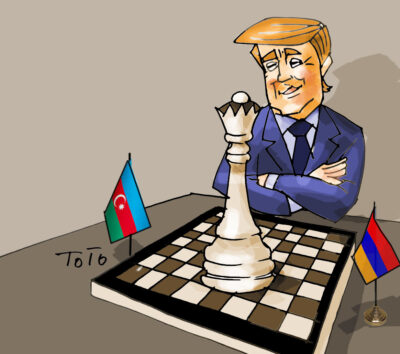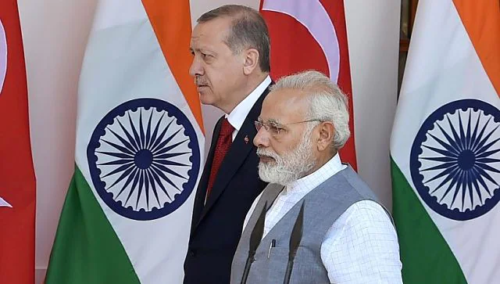Why It’s the Right Time for India to Give Turkey an Armenian ‘Gift’ for Its Stand on Kashmir
By Amitabh Singh
The Armenian Genocide has been recognized by 34 countries, but India is still weighing its options to balance out its relations with Armenia and Turkey, this despite the fact that Erdogan constantly targets India over the Kashmir issue.
April 24 marked the commemoration of the Armenian Genocide. The first phase began on 24 April 1915, as young Turks arrested and murdered hundreds of Armenian intellectuals and community leaders in Istanbul (Constantinople then). The killings were not only limited to the massacre of Armenian Christians but also of Assyrians, Greeks, Yazidis and other non-Muslim minorities. An estimated 7-15 lakh [hundred thousand] Armenians were killed due to policies carried out by the ruling elites. The number of people killed was through large-scale massacres and exiling them into uninhabitable desert tracts of modern-day Syria to eventually perish without food and water. The killings continued even after the formation of modern Turkey led by its republican rulers. The accounts of the destruction and killings have been well documented mainly in the US and British archives by the Armenian diaspora, which is scattered throughout the world and outnumbers the population of Armenia, the most numerous in Russia, the US, France, among others.
It is one of the most brutal massacres recorded in modern world history. This widescale killing inspired Polish lawyer, Raphael Lemkin, to conceptualize the term “genocide” and its eventual criminalization. Genocide, as described by Lemkin, does not refer only to the physical extermination of the people but also the extinction of the victims’ cultural, spiritual, and religious identity.
In Turkey, even after more than 100 years, any reference to the genocide is taken as an “attempt to denigrate national identity” and is punishable as per Turkish law. Turkey refuses to accept the term “genocide” because it happened between 1915 and 1917, and genocide as a legal term cannot be used retroactively. The popular perception amongst the Turkish population is that large-scale deportation of the Armenian population did take place as the Armenians had collaborated with Russia in World War I when the Russians attacked Anatolia. This event “might” have resulted in around 3,00,000 Armenians perishing in harsh and barren deserts of Syria. But the deportation was done as a punishment, and the resulting deaths were coincidental and were indeed not a “genocide” by any stretch of the imagination.








